She worked tirelessly. Eyes half shut. Skin worn from years of putting herself through the grind of long hours for the mighty dollar. The dollar that would sustain her until her next check but also serving as an investment in the future—her son.
She recalls following the crops from Yuma, Arizona, to Salinas, California, as a child. She talks of cotton between her fingers and the feeling of gratefulness at Christmas as she received a brown paper bag filled with nuts, fruit, and, if it was a good year, some chocolate too.
With each passing year, she worked with zest and zeal as if she was sculpting her greatest masterpiece. An artist whose true body of work was her life.
She did it with vigor. She did it with love.
To this day she wakes long before the rooster’s crow and pushes into the depths of the day with an energy that can best be described with one word.
Passion.
Passion is the fuel that makes dreams become a reality. It is what may seem foolish to some but acts as a driving force, keeping one hungry and always moving forward. It serves as motivation to get one up in the morning and reminds one that an obstacle is nothing more than an opportunity to overcome, and build character.
Such passion can be found amongst three individuals whose love for what they do is not a facade, but an extension of a dream founded long ago in two individuals who saw an opportunity to turn their vision for food and people into a franchise built on one unifying thread: love.
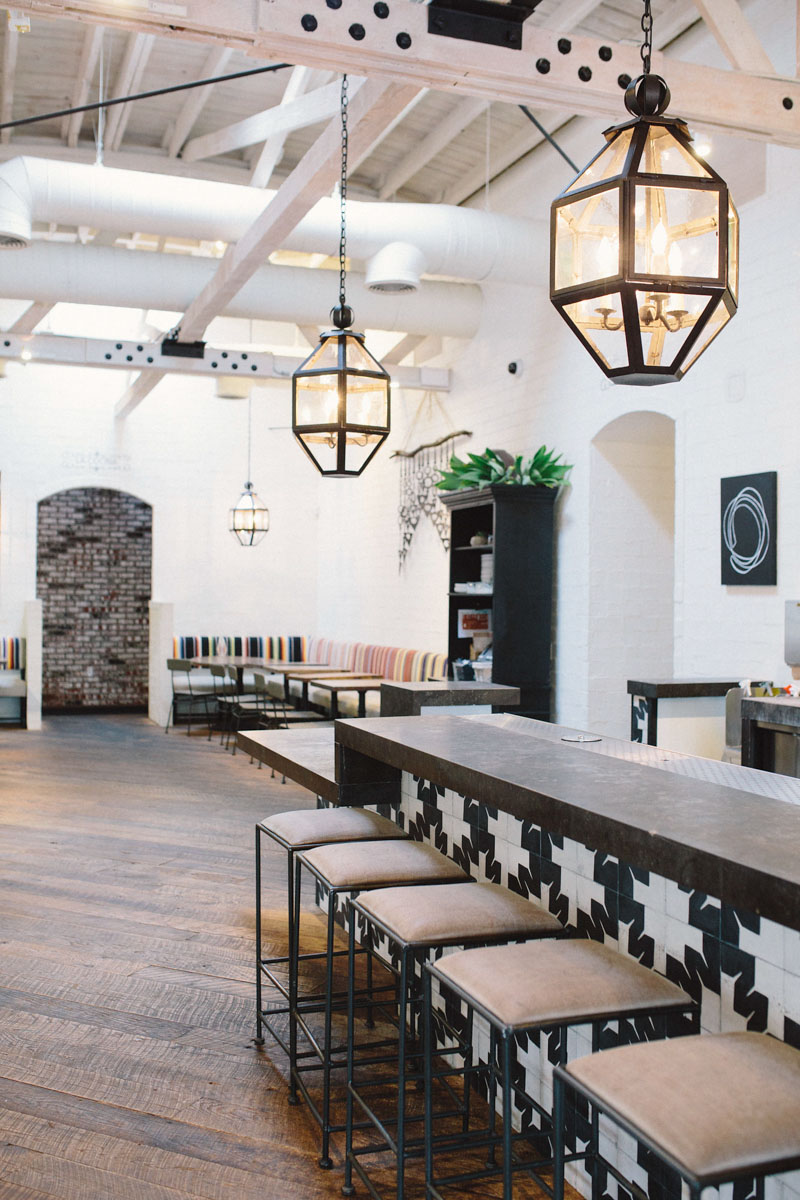 |
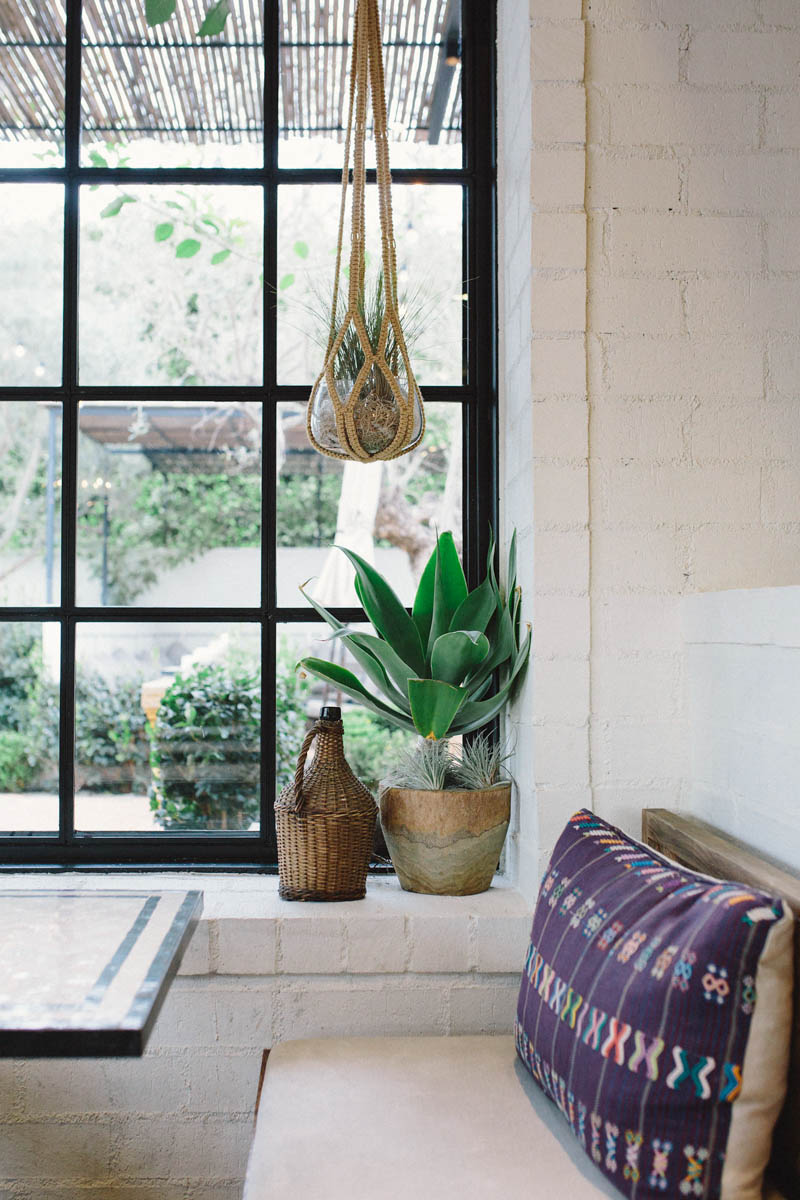 |
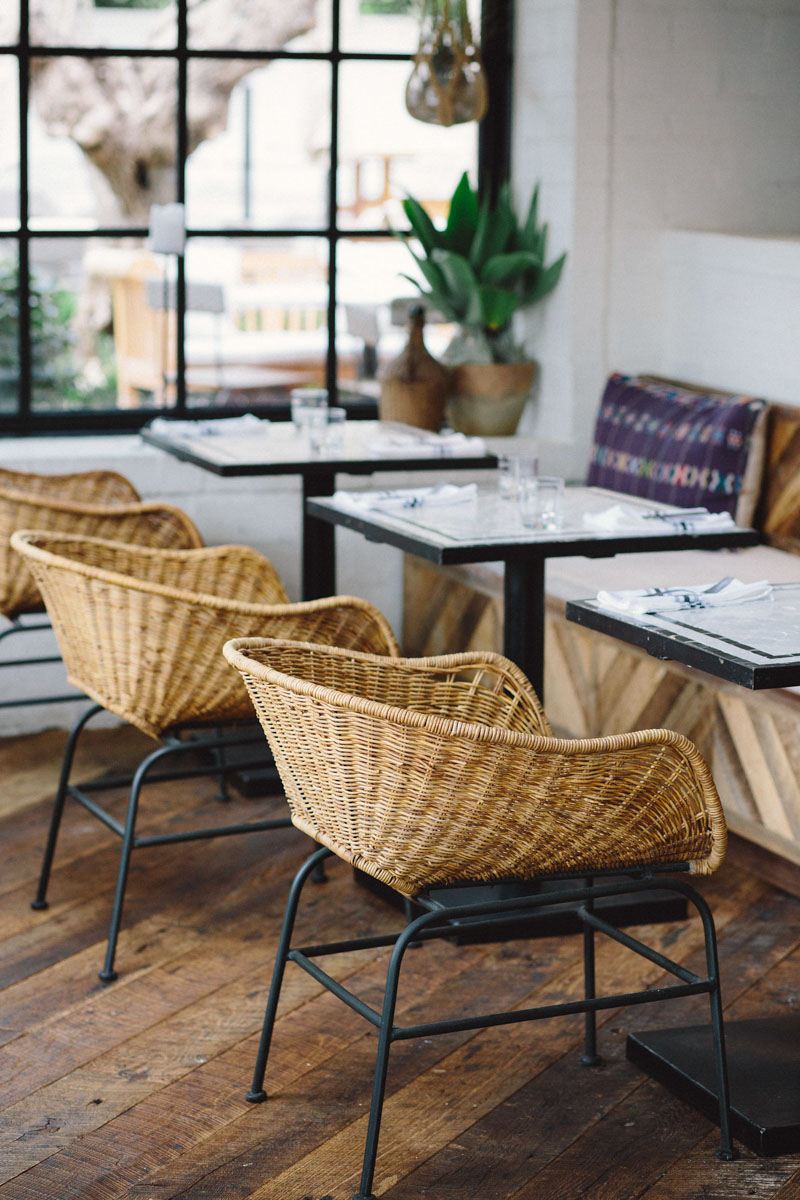 |
 |
A love for the process that goes into food. From the soil, to the preparation, to the presentation, that seems to be more of an offering to the customer with a genuine respect for each and every detail as if this was an artist working tirelessly on their craft, on their body of work.
Without further ado, it is my pleasure to introduce you to Cary Mosier, Ryland Engelhart, and Lisa Bonbright, the heart behind one of West Hollywood’s most popular restaurants, Gracias Madre.
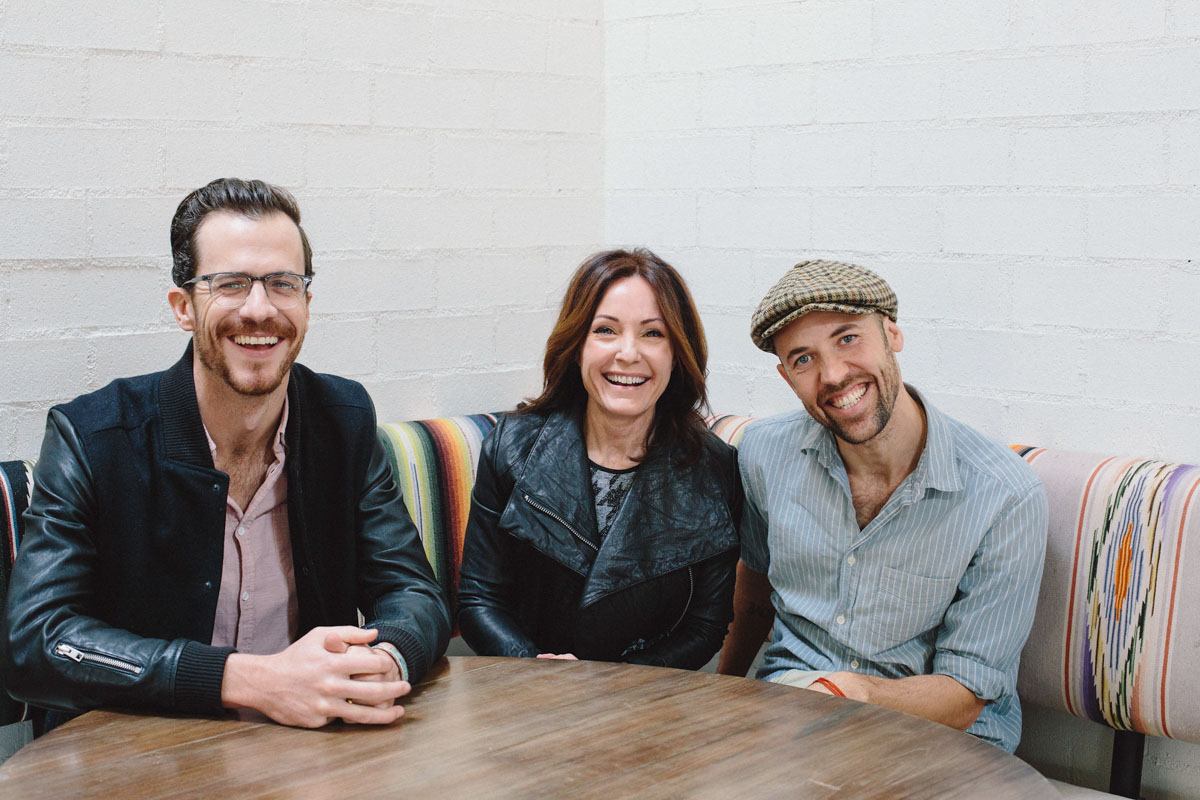
Can you give me a brief synopsis of how the seed was planted from Café Gratitude to the eventual opening of Gracias Madre in Los Angeles?
Cary Mosier: When our parents got married they had a conversation with us. They consciously created what they wanted the context of their marriage to be. Which is a little atypical of relationships I was used to seeing or growing up around. As opposed to just being married and doing whatever married people do, they were like, “Let’s put our energy into something specific that inspires us.” And what they were inspired by at the time was really practicing a view of life that was based on gratitude, appreciation, and teaching people these principles of you’re the source of your experience of life, as opposed to the circumstances.
So they actually created a board game teaching these ideas. It was like a new-age version of the game of Life where you roll the dice and you pull these cards and the cards ask you questions like, “Who is someone in your life you can forgive?” Or, “What’s something you take advantage of?” Or, “What is something you wish you had more of?” Reflective questions like this all geared toward this idea of acknowledging the abundance of our world and putting our attention toward appreciation of that.
They actually spent a lot of time on that, like two years. They hired an artist and went full-tilt on this thing. They spent a lot of money. It looks like Milton-Bradley made it. It’s not like a hand-drawn piece of paper, it’s a full-on board game. It was manufactured and it really turned out well.
So they actually had this board game first, and I remember my mom called me—I was living in L.A. at the time going to film school, and Ryland was in L.A. too; we were living together. My mom has always been leaning toward a very new age-world and was always very into positivity, healing, open communication and these kinds of things. For me, it was a little bit of the routine of conversation with my mom. It was like she was up to some crackpot idea again. This board game, I didn’t really get it. But of course I’m going to tell my mom it’s great and, “Go on, mom. You’re awesome!”
This is around 2003. They basically got into raw food. They already had this board game when they started getting into raw food. And so the next phone call my mom made to me was, “Hey Cary, you know that board game we have? We’re going to open a gaming parlor. It’s all going to be a raw food café. We’re going to put board games on every table and we’re going to serve raw food and we’re going to play the game with the customers.”
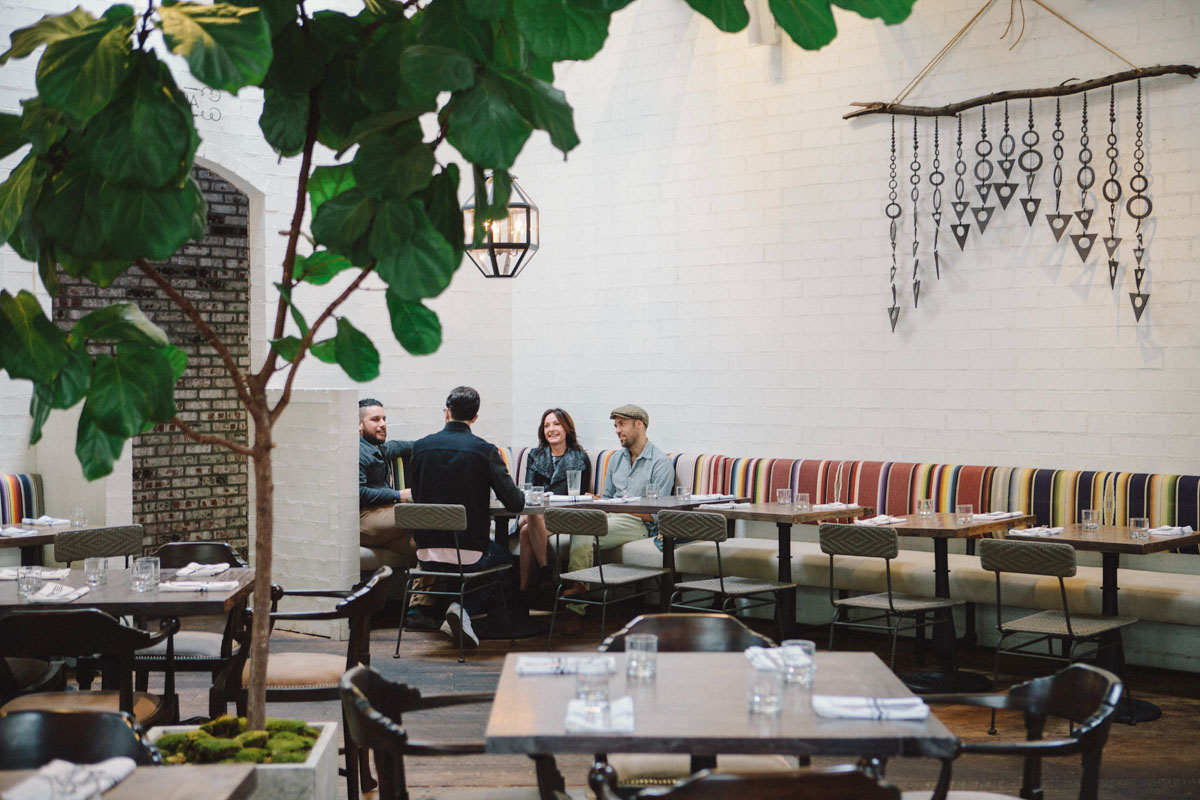
In terms of personality how would you describe you and your brother?
Ryland Engelhart: One thing you’ll learn about us is that Cary and I are a totally yin and yang. Cary is very practical—a little cynical, very nuts and bolts—and I have none of that. My only intention is presence and creating transformation and seeking every opportunity to create a moment to share love. That’s really how I’ve been wired most of my life.
Lisa Bonbright: Ryland’s message is love and his answer is yes.
RE: That’s what my voicemail says.
LB: It absolutely sums him up. That’s Ryland.
With the success of the Café Gratitude franchise, how did the concept of Gracias Madre come to fruition?
LB: Matthew and Terces (Ryland and Cary’s parents) opened Gracias Madre in 2010 in San Francisco. So what happened was when I got involved I went up there and said, “Whatever this is, this needs to be in Los Angeles.” Gracias Madre hadn’t opened yet when we started the process of bringing Café Gratitude down. Then we opened Café Gratitude up in March of ’11. And the reception was unbelievable down here. So when we were open a year, maybe a year and a half, we saw that people were really loving the food and really wanted more. So we all decided we should bring the concept down south, including Gracias Madre as well.
CM: And really, internally, to satisfy our own desire for variety. We eat at our restaurant all the time and many other restaurants in L.A. It’s a lot of fun to build a restaurant, build a concept, and create an environment. The idea of doing a Mexican one, for all of us, was a good change. We had been doing the Gratitude thing for a couple years down here. We decided to switch it up.
RE: Many times I’ve described the iteration or second phase of Café Gratitude as an evolution. If you were to look at the imagery of the Café Gratitude board game the image is a profile of a woman with glaring, reflective sunglasses. And there’s a barren orchard that looks a little eerie, like the world is in dormancy or has been destroyed or in winter. And yet in the sunglasses, the reflection in the sunglasses is this epic picture of abundance and beauty and fecund nature.
In Northern California, the restaurant grew stagnant a bit. Cary and I were just far enough away to take what we learned and start something new that could grow faster, more beautiful and more brilliant in Southern California. To me I believe, the Gratitude image really describes the company and our journey that eventually led to Gracias Madre.
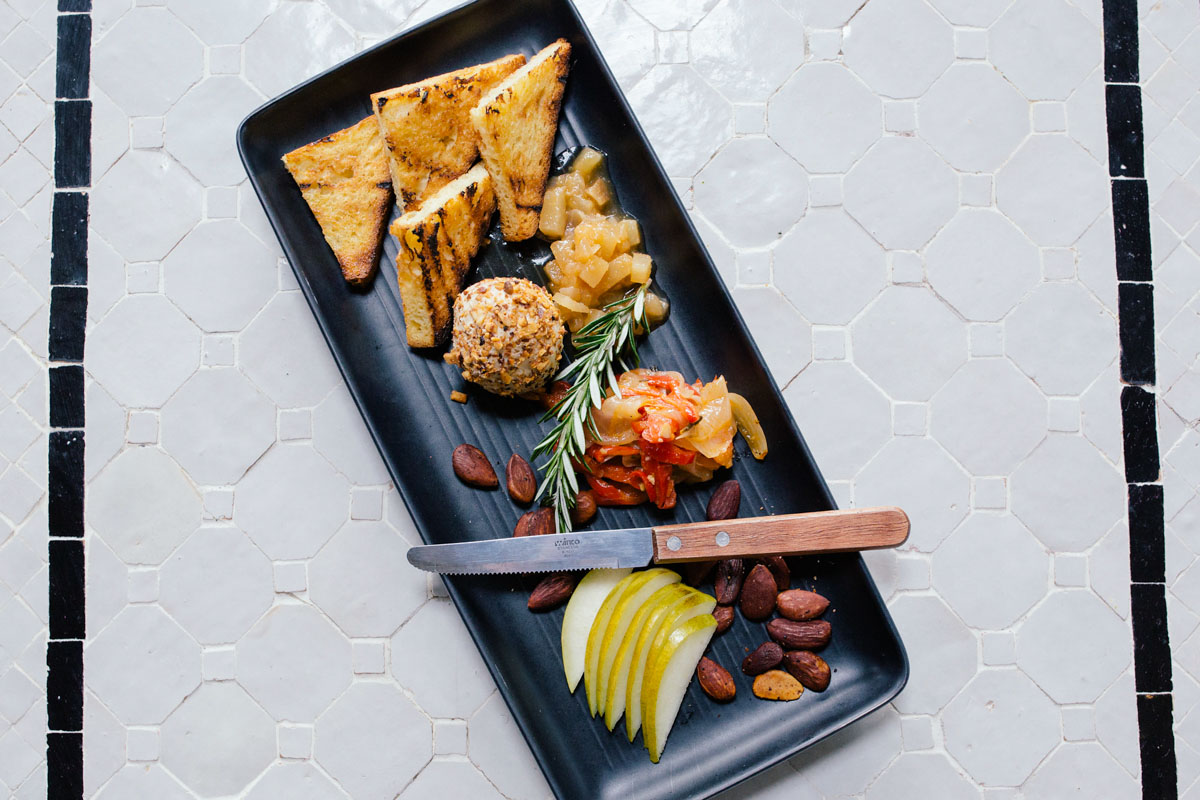
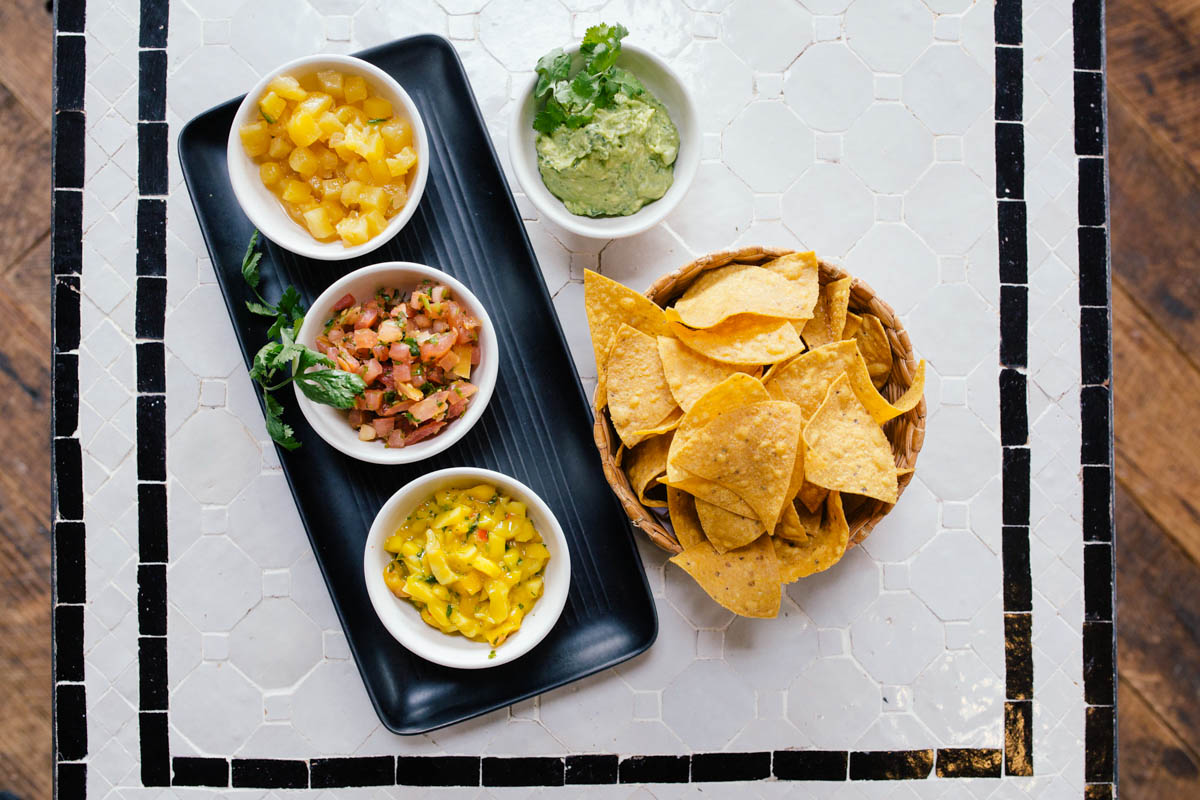
Lisa, how did you get involved with the company?
LB: I went up to the Bay Area around May 2010. I was there for two weeks and I wanted to eat raw food. That’s what I was looking for. I wanted to do a two-week raw food cleanse. Somebody said I should go to Café Gratitude because I could get everything I wanted prepared.
Just walking in the door and the menu and the vibe of the employees there blew me away. And then I ate the food and I was just blown over. I called my husband—who was down here in L.A.—and said, “I have just eaten at some place we don’t have in L.A. that I would love for it to be in L.A. because there’s a big hole in L.A. for this.” I ate every meal there for two weeks—breakfast, lunch, and dinner. I called my husband every day at every meal saying, “You can’t believe what I just ate.”
After two weeks he thought I’d lost my mind. But he was coming up, and when I picked him up at the airport instead of taking him to my in-laws I took him straight to Café Gratitude with my kids and we sampled everything. I had already met Ryland at that point and just kept saying, “You guys need to be in L.A.”
Long story short, Chris and I met with Matthew and Terces—Ryland was there and Cary was up in the loft area. We all met and just hit it off. We were just under the impression that we would just find them some real estate space down in L.A. and they’d open their operation. That would be great and I’d eat there every day.
I guess it was about six months into it, Matthew and Terces called us up. We went back up to San Francisco and they said, “Listen, we love you guys but we don’t have the energy right now to roll these out to Southern California. That’s the bad news. The good news is we think you guys should roll us out.”
My husband, the businessman that he is, said, “Thank you very much. We’re not getting into the restaurant business. We’ll see you socially.”
So we had driven up, and my husband and I got in the car and I was really quiet. I had raised our kids and I had done all the things my husband wanted for his business and his real estate. I was in property management; it was probably the most unglamorous job you could have. So we’re driving on the 10 and I looked at him and I said, “You know what? We’re doing this. We’re going to open these stores. We’ll raise the money.”
Anyway, he said, “Alright. Let me dig into the financials a little bit more. Let me think about it.” So he dug into the financials and it looked extremely promising. They were doing really great numbers up there.
We actually owned the real estate Café Gratitude, Larchmont, is in and we had that space vacant. So it sort of just worked out, didn’t it?
We’ll have been open for almost five years. It’s been just a ball. I’ve got these two incredible guys. They know everything there is to know about the restaurant. I’m more the business side and the aesthetics. My husband does the real estate.
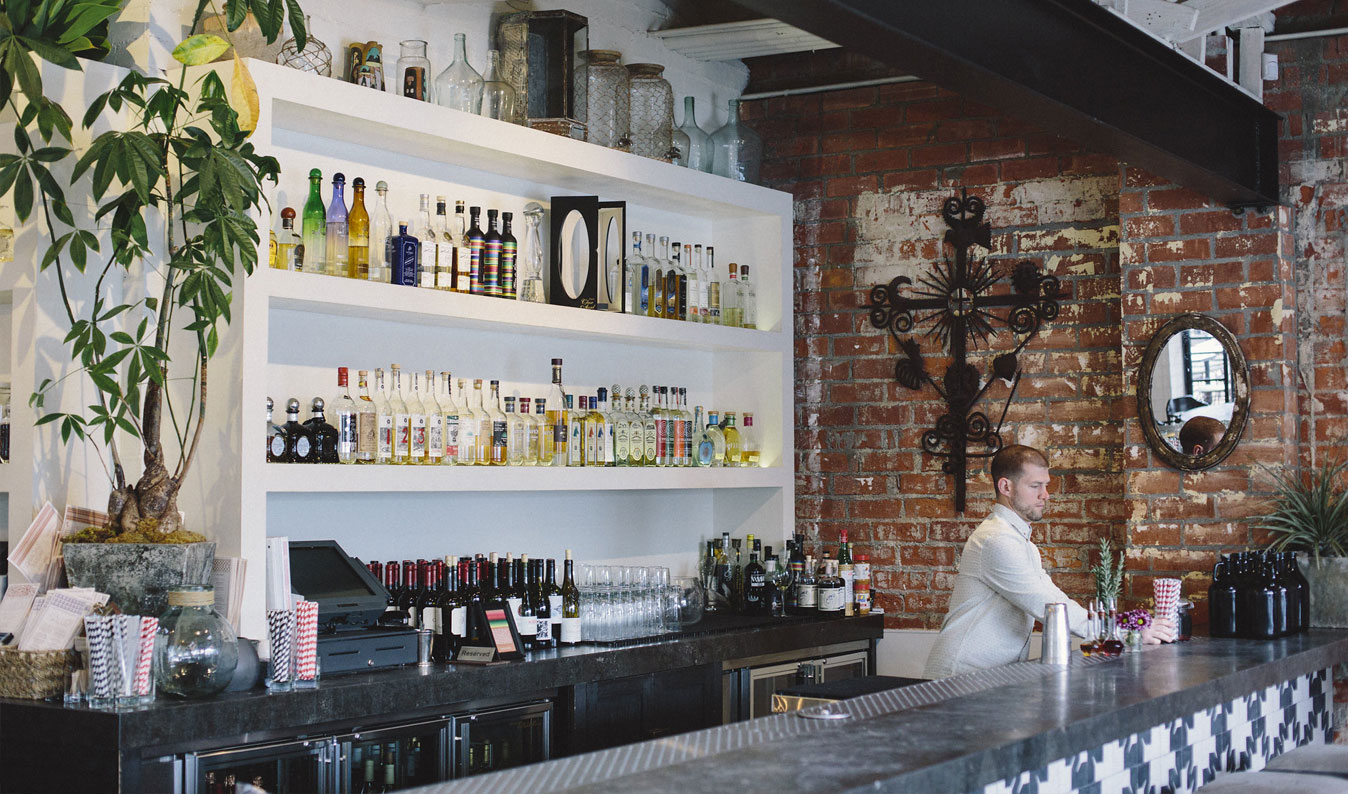
Full disclosure—I am not vegan or vegetarian whatsoever. My wife grew up vegetarian, so when I got married to her it was a transition for me. “What do you mean no meat in the house?” I said. I’m the kind of guy who will eat and at the end say, “This is actually pretty good.” I would tell her, what it comes down to is taste for me. If it tastes good and it’s flavored well, it doesn’t matter what it is. I’ve grown to appreciate that mentality and the way she prepares food. I was the one who went to Café Gratitude in Venice for the first time years ago. I was blown away by the menu. I kept coming back and I told my wife, “You’ve got to come here. This place is amazing.” So when we came to Gracias Madre I was a big advocate for the food after we left. It was great tasting. I don’t care if it’s titled something else. There are always these titles some love to put onto things. Food is food to me, and if tastes great then I am game. I’ve gone to some places that serve meat, and some great places that serve vegetarian and vegan, and I absolutely love it. What does that mean to you? What is the concept around your food process and around building great tasting food, regardless of titles?
CM: I think you described it well. Within our family, our one core principle is we always use organic ingredients. Ryland’s father is from an agricultural background. Within our family, you always buy organic; you always buy the cleanest food. So that’s been a big concept on the foundation level of every restaurant we open: everything we buy is organic.
RE: From a very practical, not a modern day understanding that just means it’s trendy and cool, but from the concept that chemicals, poisons or toxins do not deserve to be in our bodies or in the food that we’re eating. It’s a very simple and basic understanding of that.
CM: And now we’re so used to that. Luckily, organic food has become popular. We’ve been doing that since the first restaurant. One hundred percent, everything is organic.
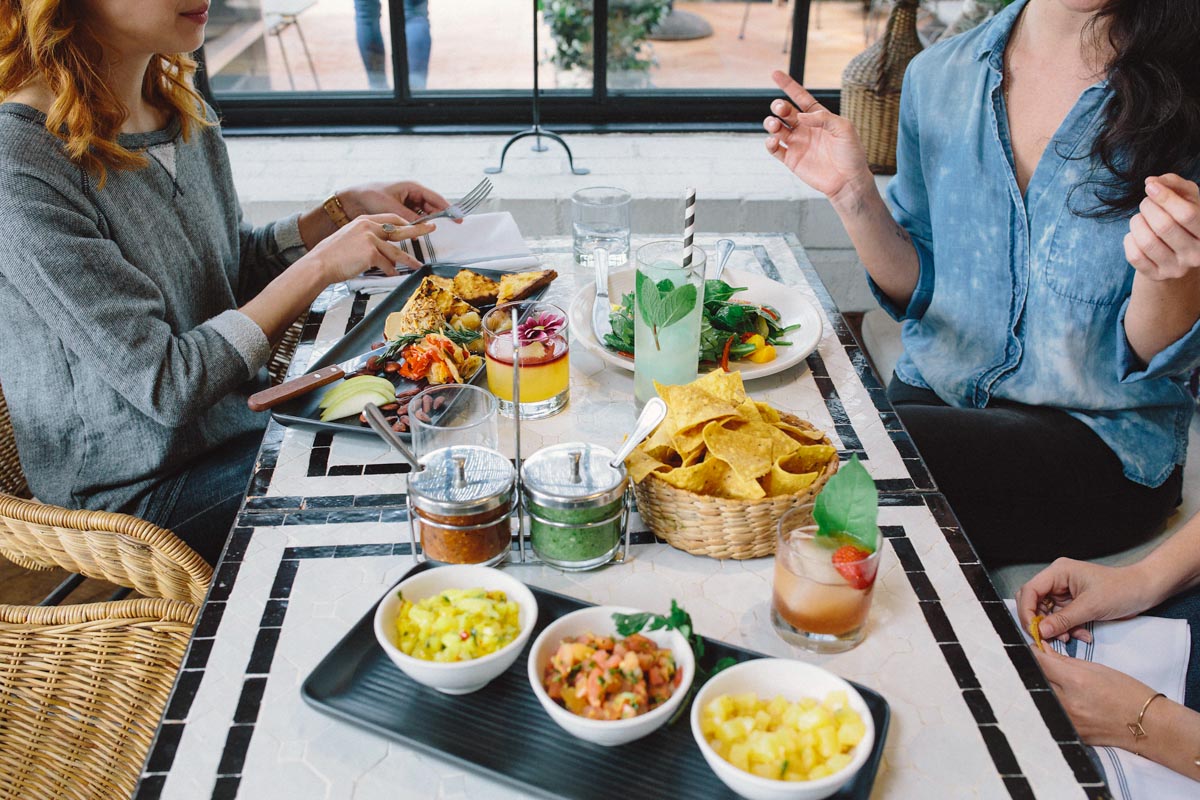
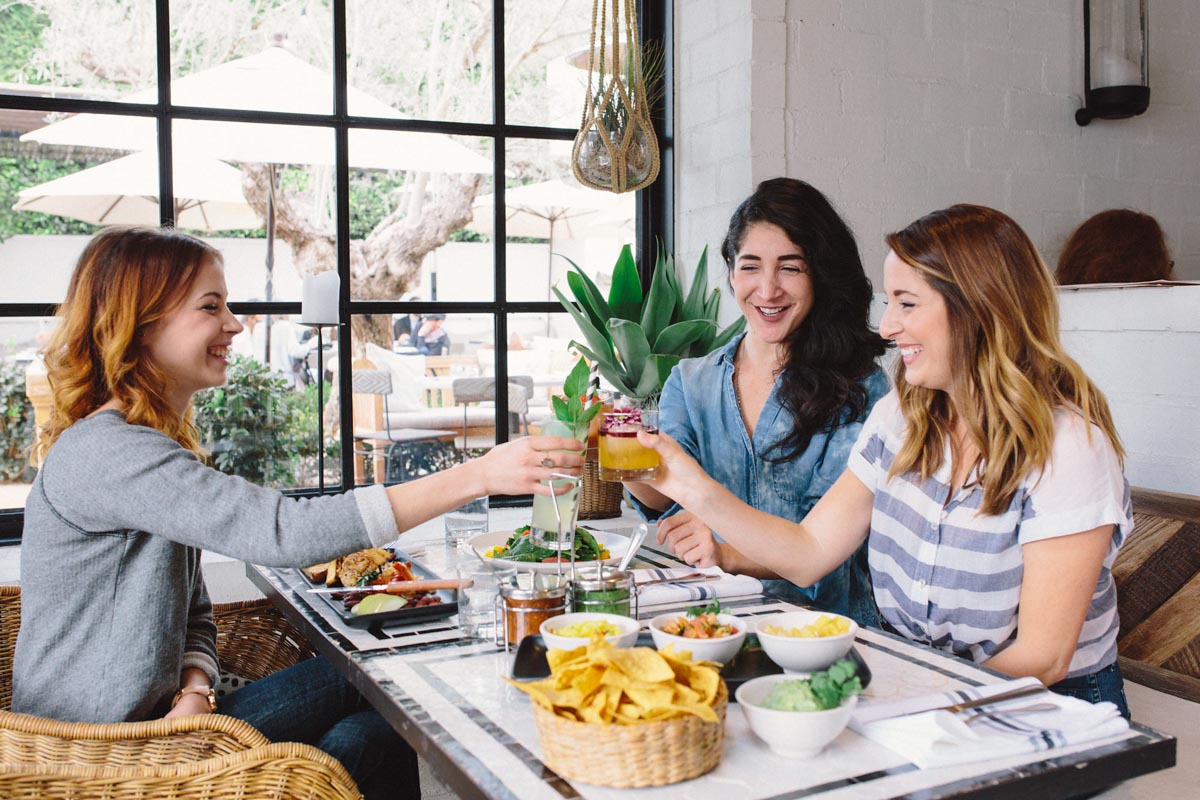
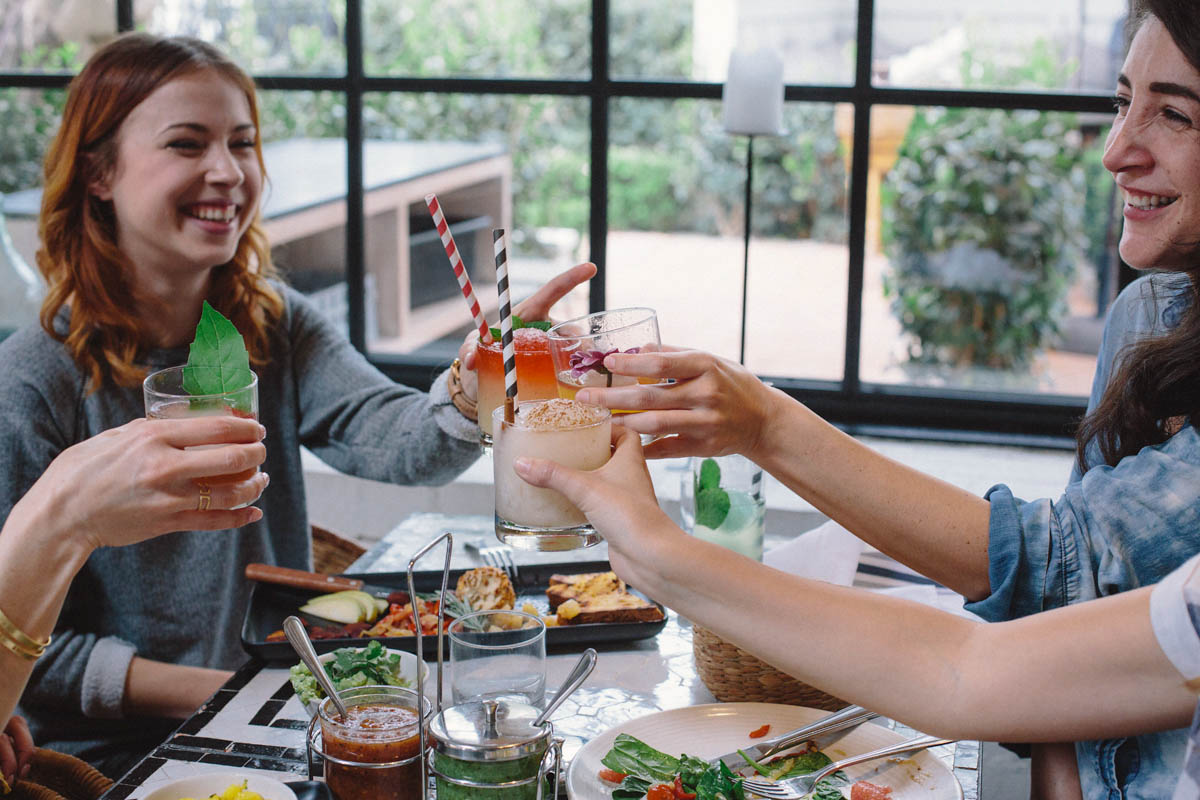
And it wasn’t a trend thing?
CM: No. We weren’t like, “This is going to be trendy.” It was, “Why would we buy things that weren’t organic?” If we can buy them and they’re not sprayed and they’re natural and they taste better, we’ll always buy that. If we can’t find organic avocados, then we’re not going to serve avocados. It’s an early commitment we’ve had and we’ve always stuck to that.
In terms of the food philosophy, my experience within the family is similar to your personal experience. We’re not dogmatically vegan or trying to preach a vegan message to the world. We’re really committed to serving food we think is healthy for the planet, healthy for people, and tastes good. That’s why you don’t find a lot of fake meats on our menu. If you cook whole foods simply and well that should suffice. We’re not trying to make things that taste like a chicken or taste like a burger. We let things be what they are. It birthed from how we were eating in our own house with the simple salads my mother was making or Ryland was making. I think going forward it’s always been just serve the cleanest, simplest, most tasty food we can. Don’t try to jump onto some trend or chase having it taste like something it’s not.
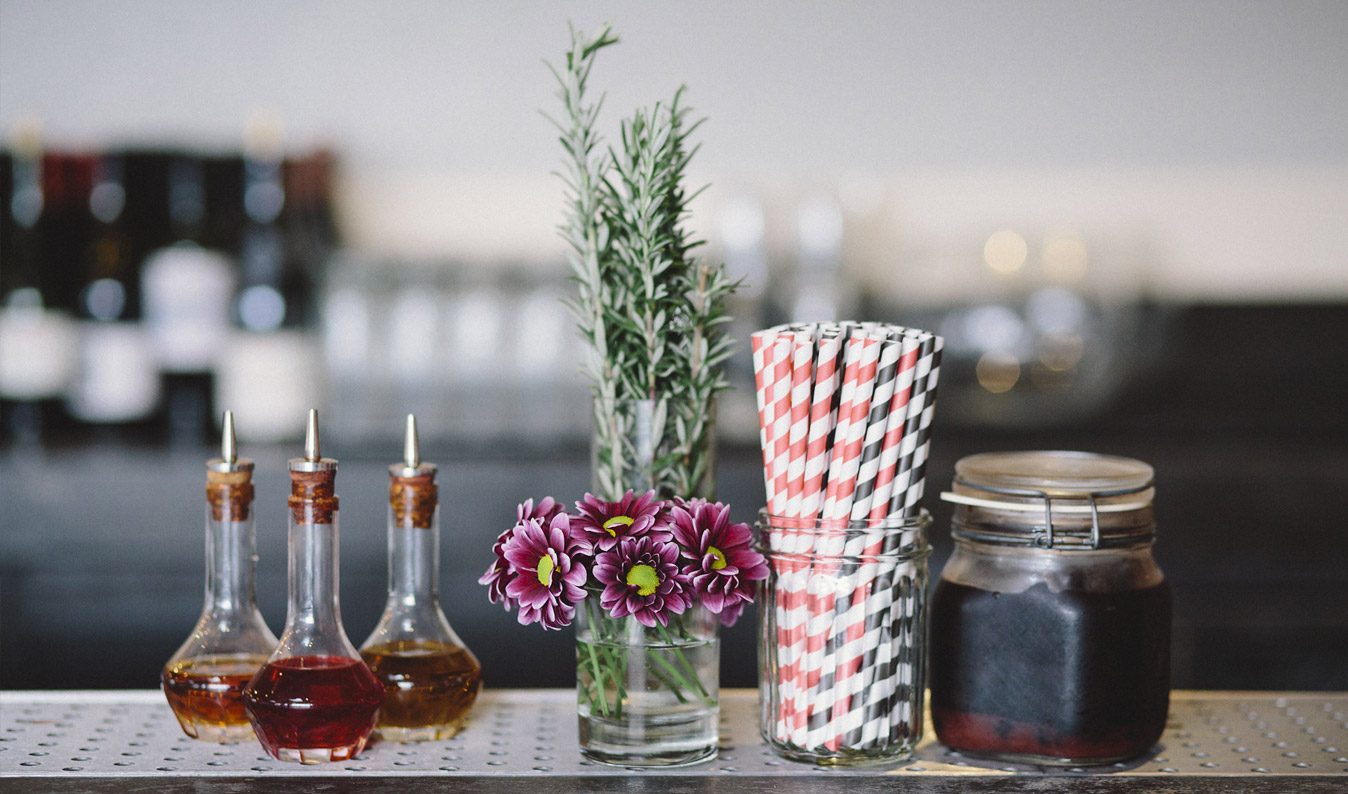
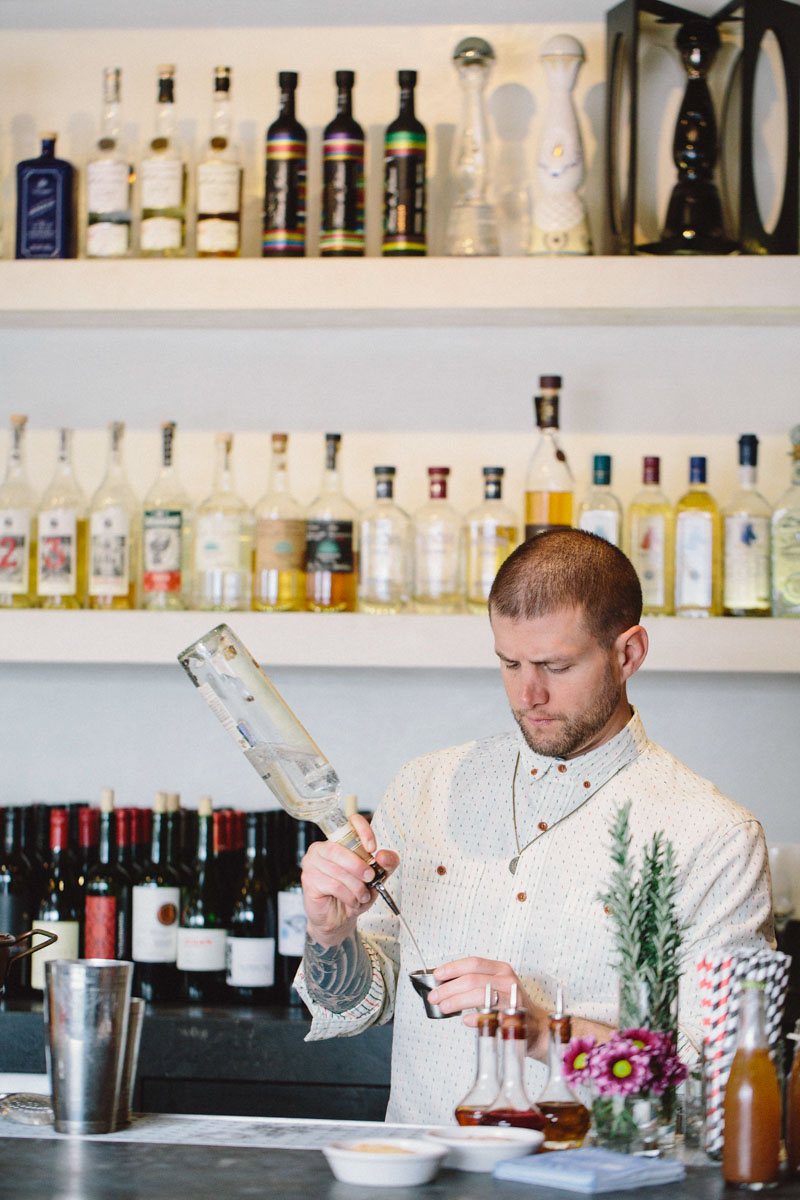 |
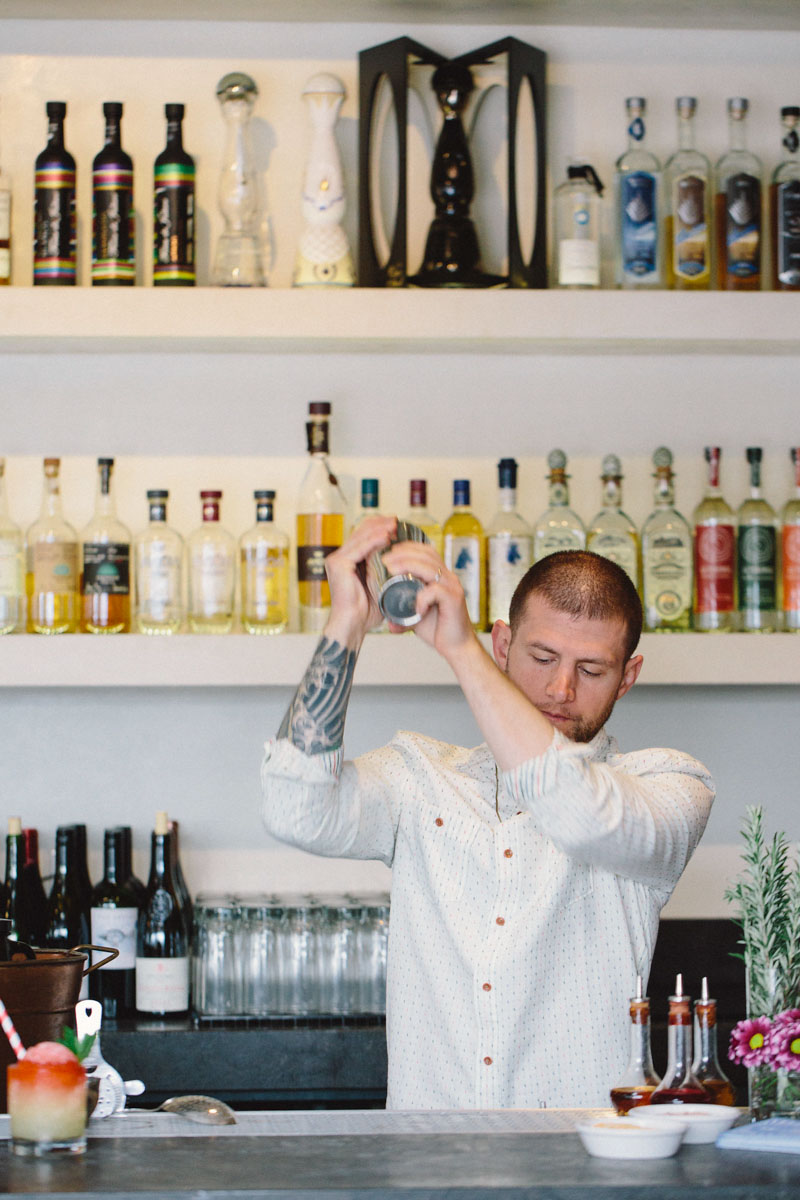 |
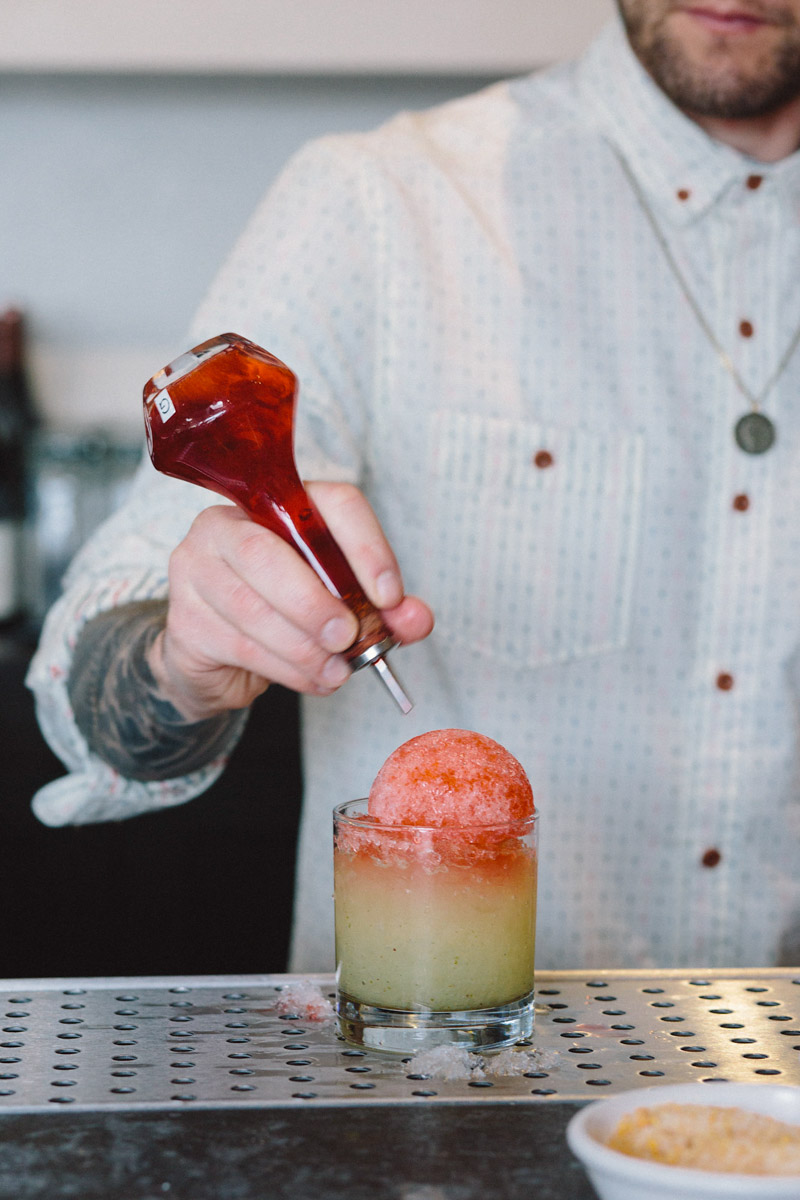 |
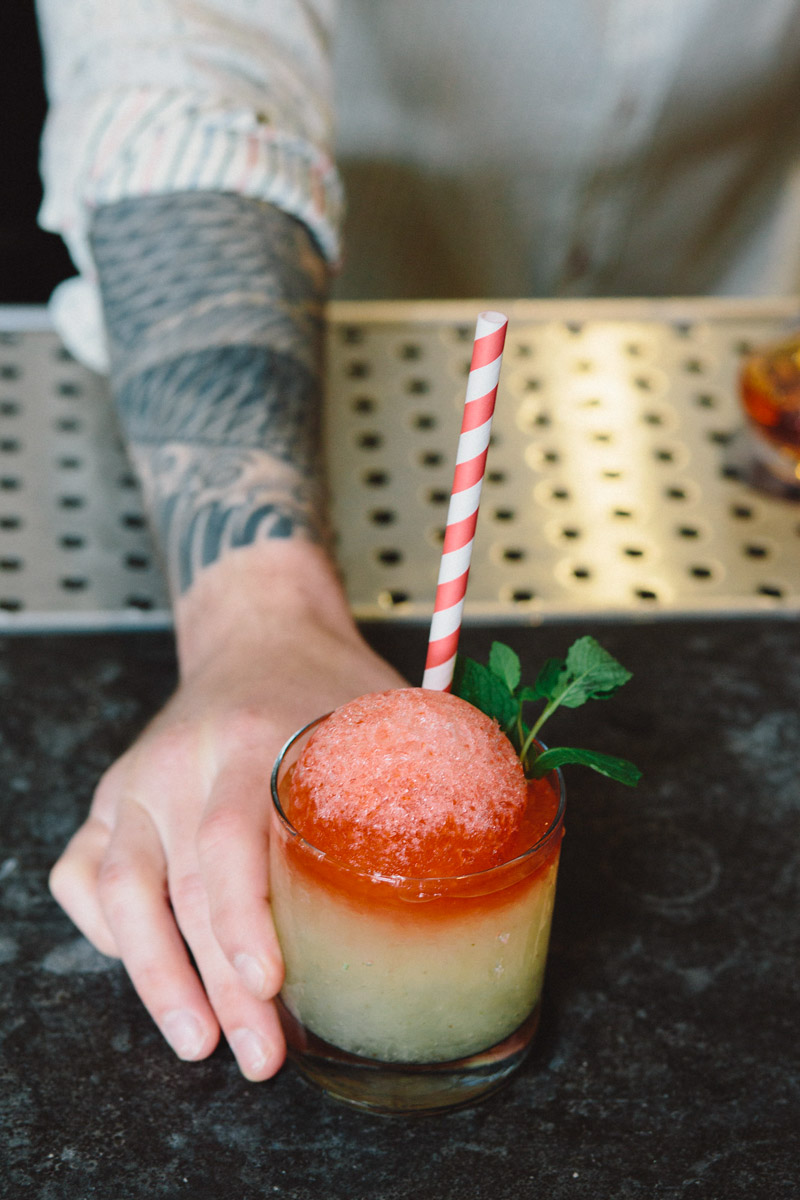 |
How did you build an environment in Gracias Madre that was conducive to growth as a family and community?
RE: When we started Café Gratitude we had 12 employees. We didn’t hire a dishwasher. We thought we’d do the dishes between customers. And then we realized how busy it was going to be. We had our first Latin American employee come in when we needed a dishwasher and were like, “Yeah, we need you! Get in there!”
But, as we discovered, about fifty percent of our workforce were people from Latin America. And because we were such a family-oriented business, we became family with this culture with whom we were unconnected to for much of our lives.
We then made a trip to go visit the families of many of our employees who we consider the backbone of our organization—many of whom couldn’t afford to go back home. So we were actually able to go be the messengers and thank their families for their sons and daughters. There’s a saying on the street called tortuga in Mexico. They were naming a road tortuga—Gratitude Lane after us. Eight out of the ten families in the community, all their sons and daughters worked in our location.
So we went back when one of our employees went back to their hometown. He raised enough money, built a home and was getting married. We were able to attend that family event and were considered honored guests. We were shown so much love and appreciation during this trip.
It was the culmination of appreciation for that culture for the ones who are working in our organization, connecting with their families and their mothers, being in Mexico, Mother Earth, and connecting with our agrarian and agricultural roots where we kind of had this insight of gracias madre. We see our restaurant and food as a way to honor this culture and food that we love so much.
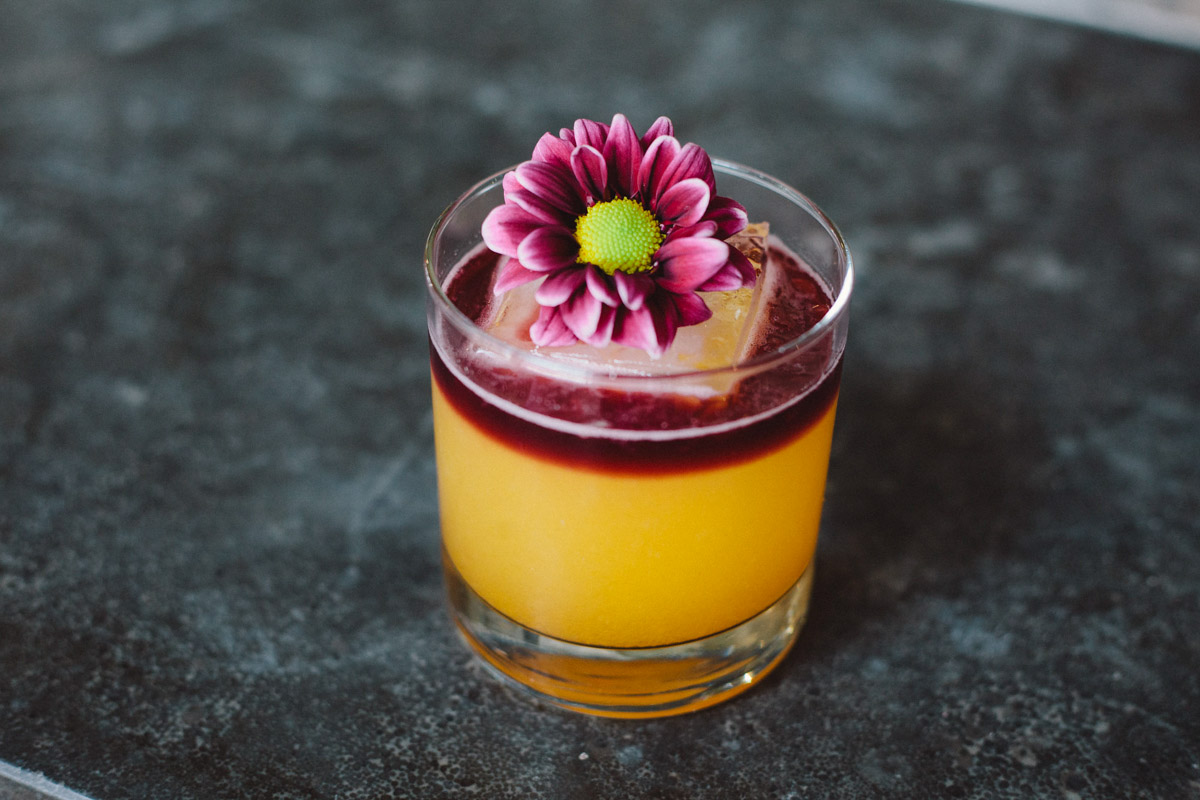 |
|
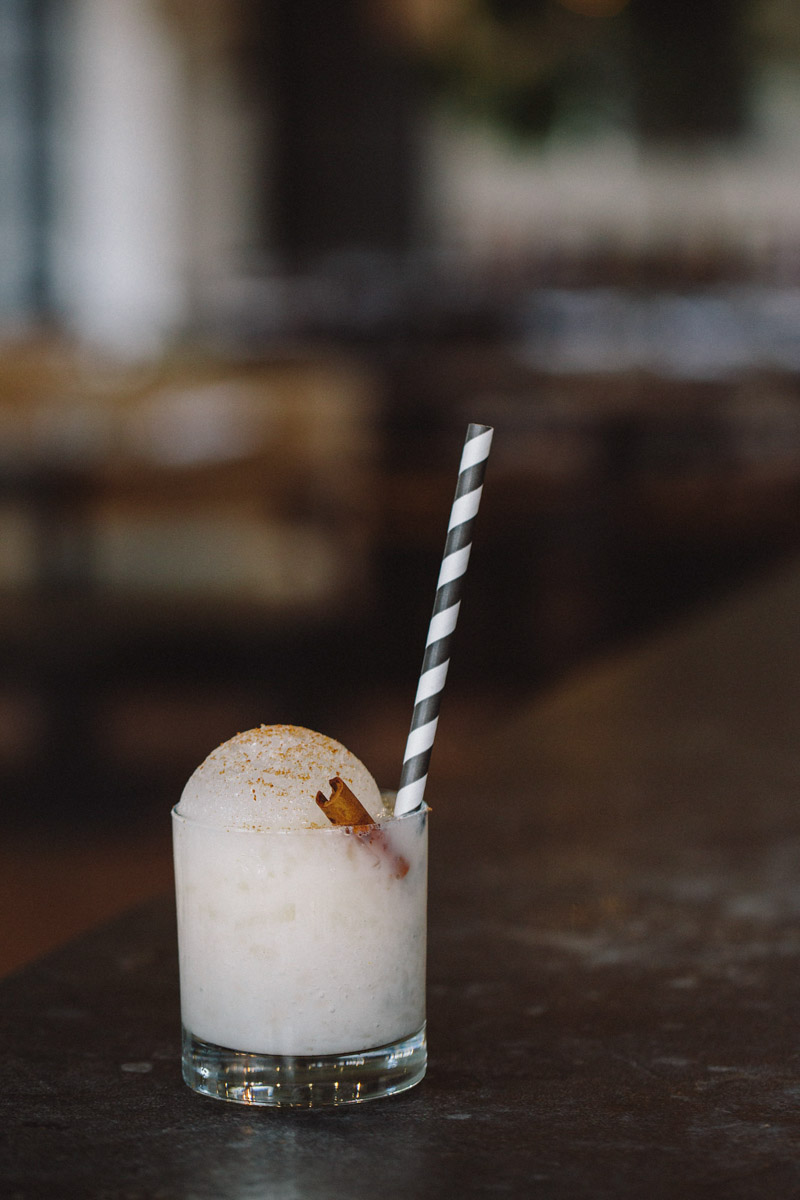 |
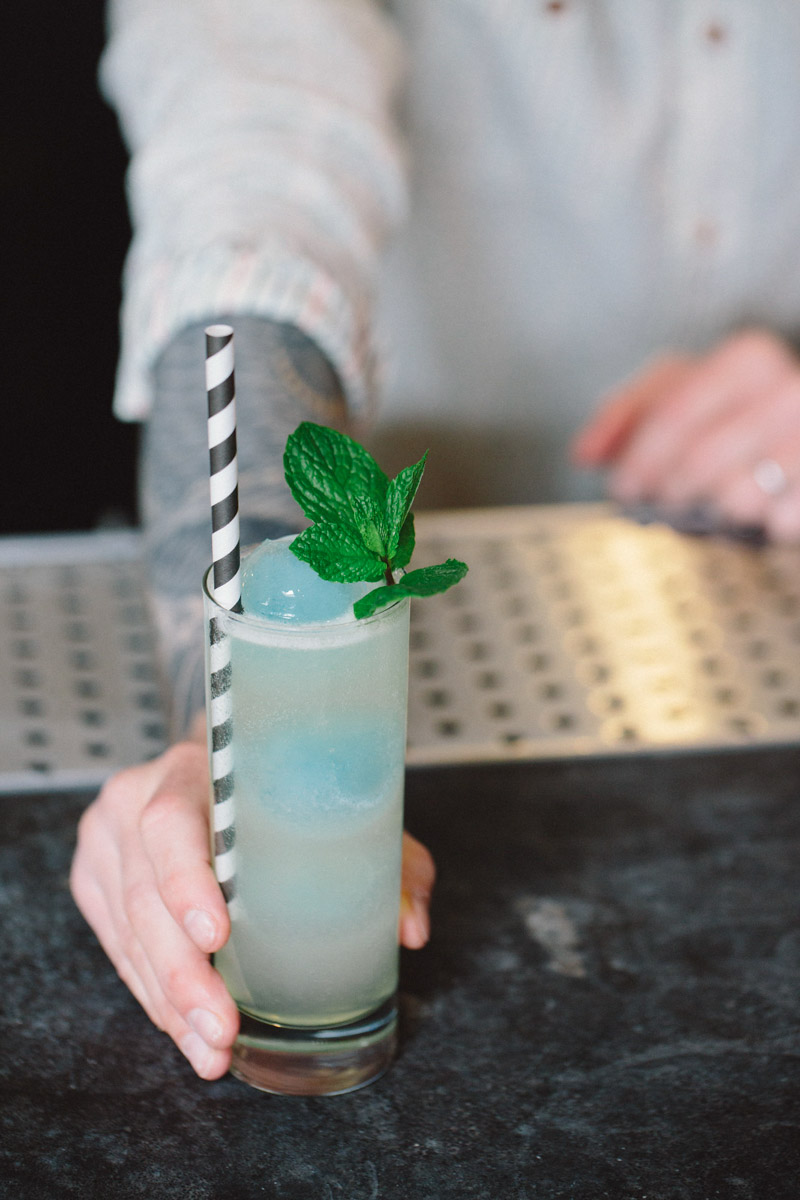 |
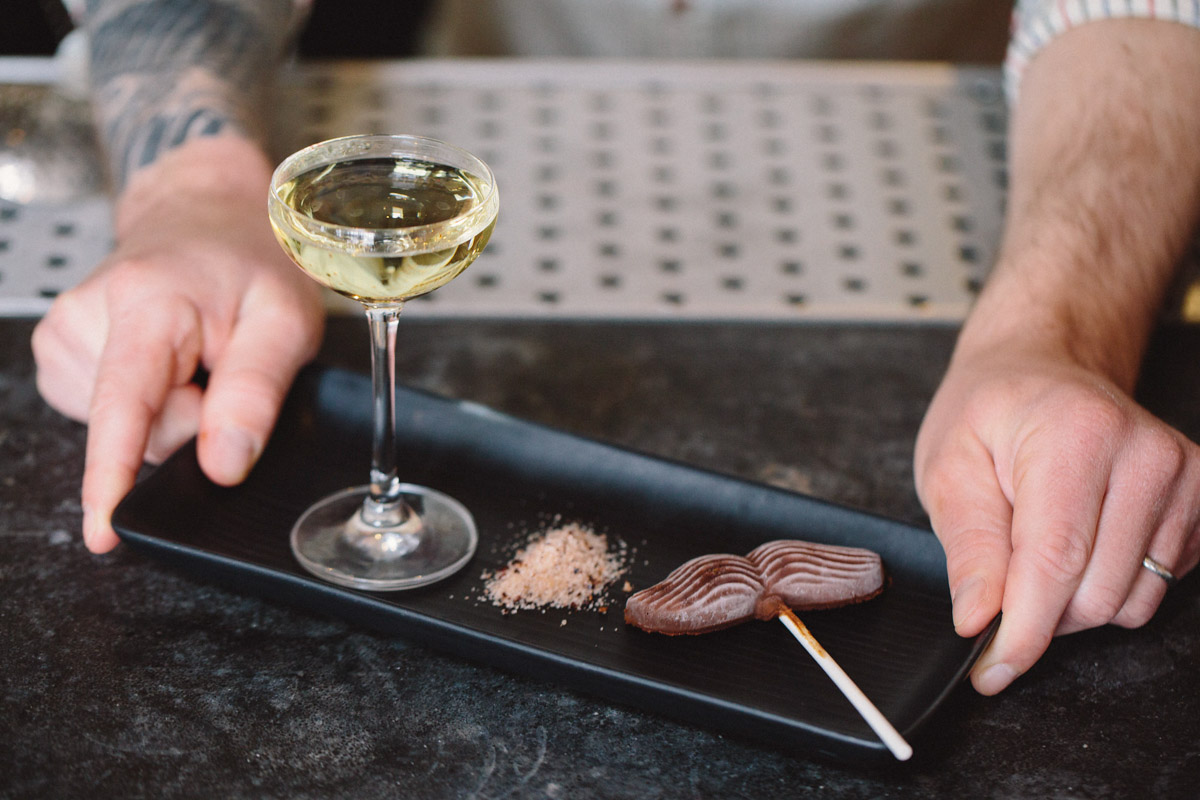 |
|
You have your own farm, Be Love Farms as well as working with—I believe—three other farms where you can get organic food produce from. Can you walk me through what farm-to-table looks like?
RE: Our commitment has been not to do something because we can then tell people about it, it’s really been guided by our hearts’ desire to do something good and beautiful. We started farming because we wanted to be stewards of the soil, we wanted clean food, and we wanted to experience what that was like. It had just been part of our nature. There was this idea of there would be a benefit of growing food and we can bring it into our restaurant and we can share this beautiful, created food with our customers.
CM: For me, one of the reasons I think we’ve been successful is the choices we’ve made in the restaurants—whether it be farm-to-table, or organic food, or vegan food—they have always stemmed from the authenticity within us. We weren’t looking for what would be popular. We were like, “Well, we’re into this, and we don’t really care if it’s popular or not. We’re going to serve that because that’s what we’re into.”
Farm-to-table, like I said, wasn’t a concept we started. Matthew, my stepfather, was really into farming. He was growing produce so it was like, “Now we’ve got to use it. Let’s use it in the restaurants.”
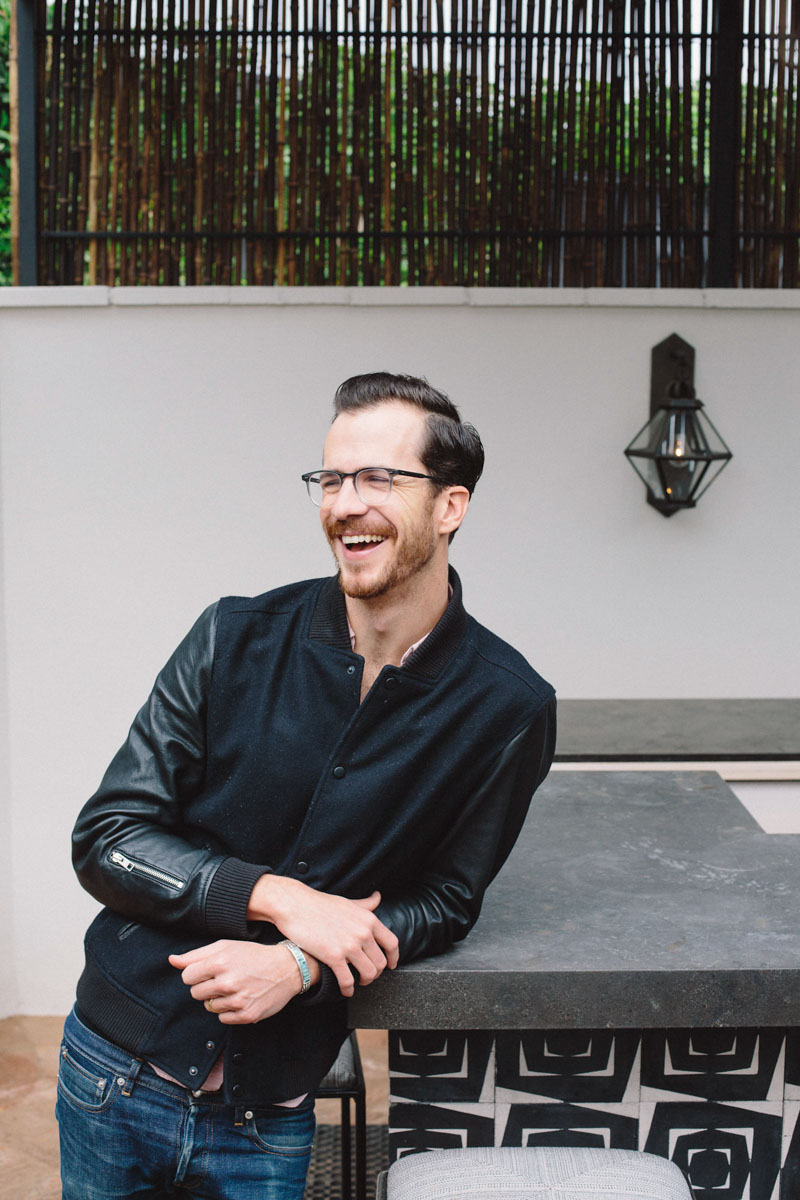 |
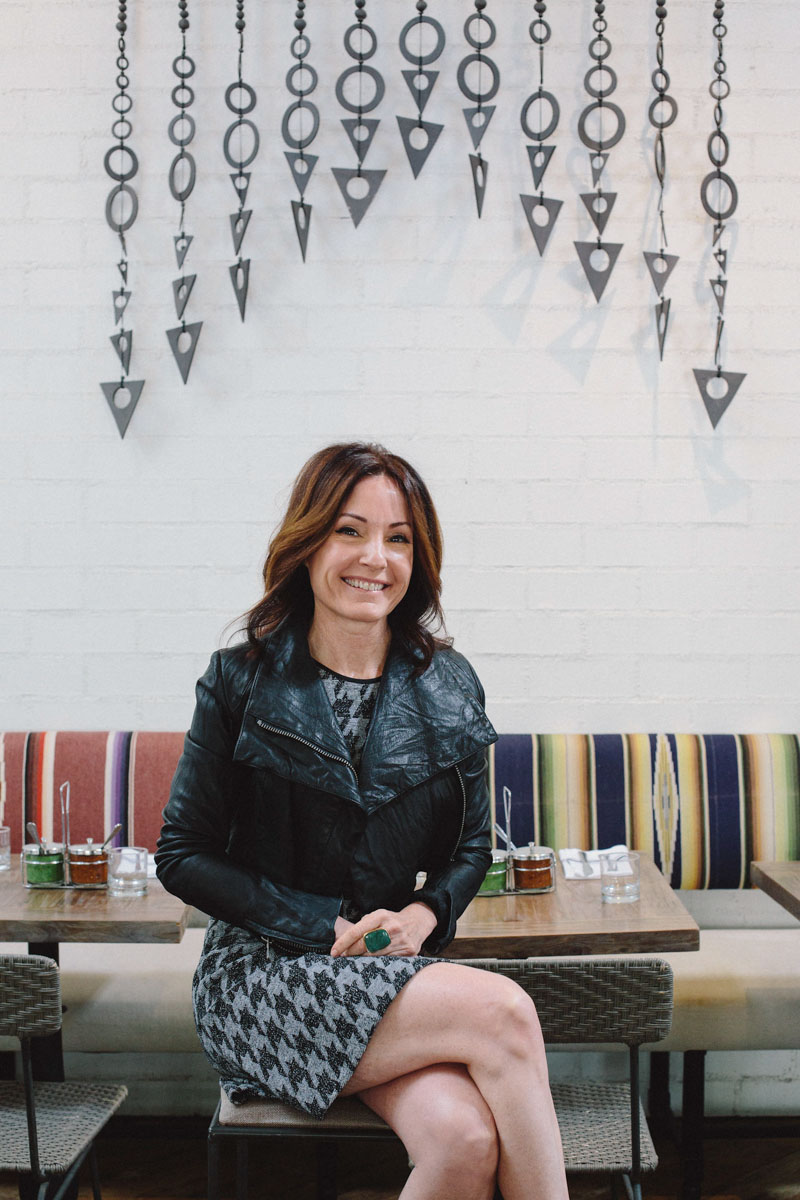 |
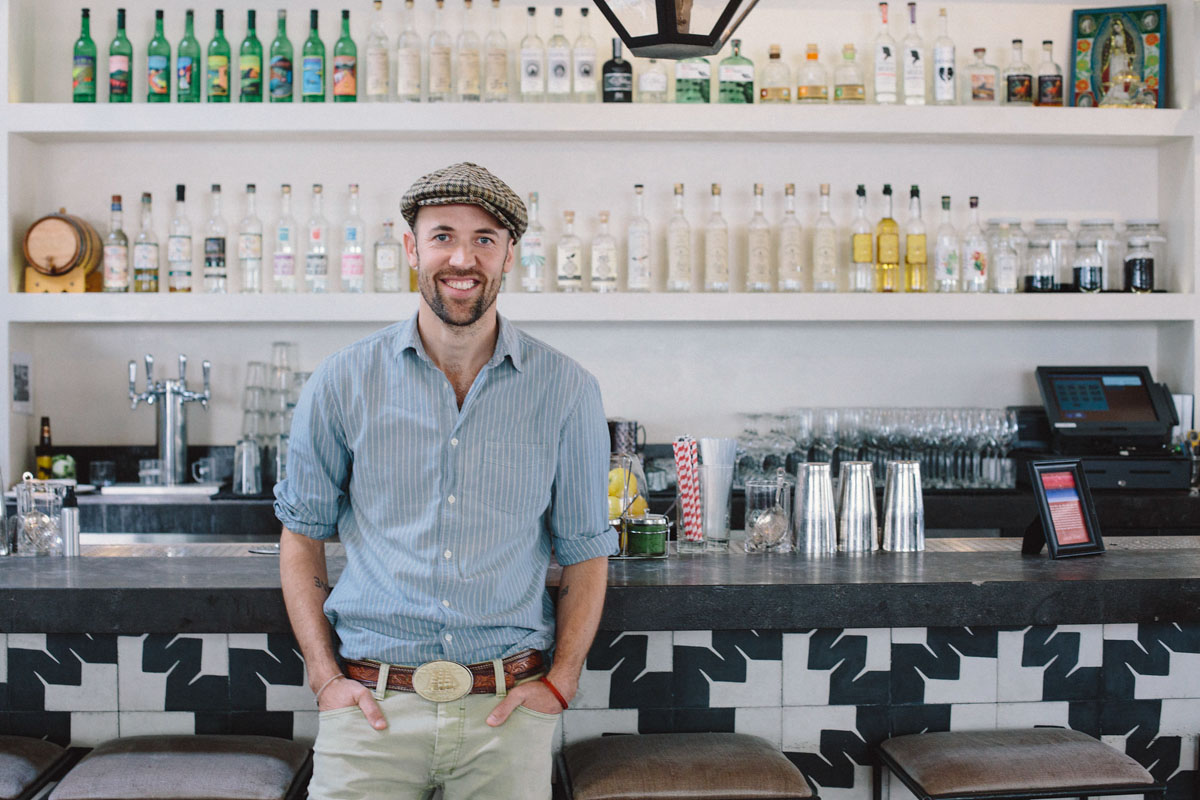 |
|
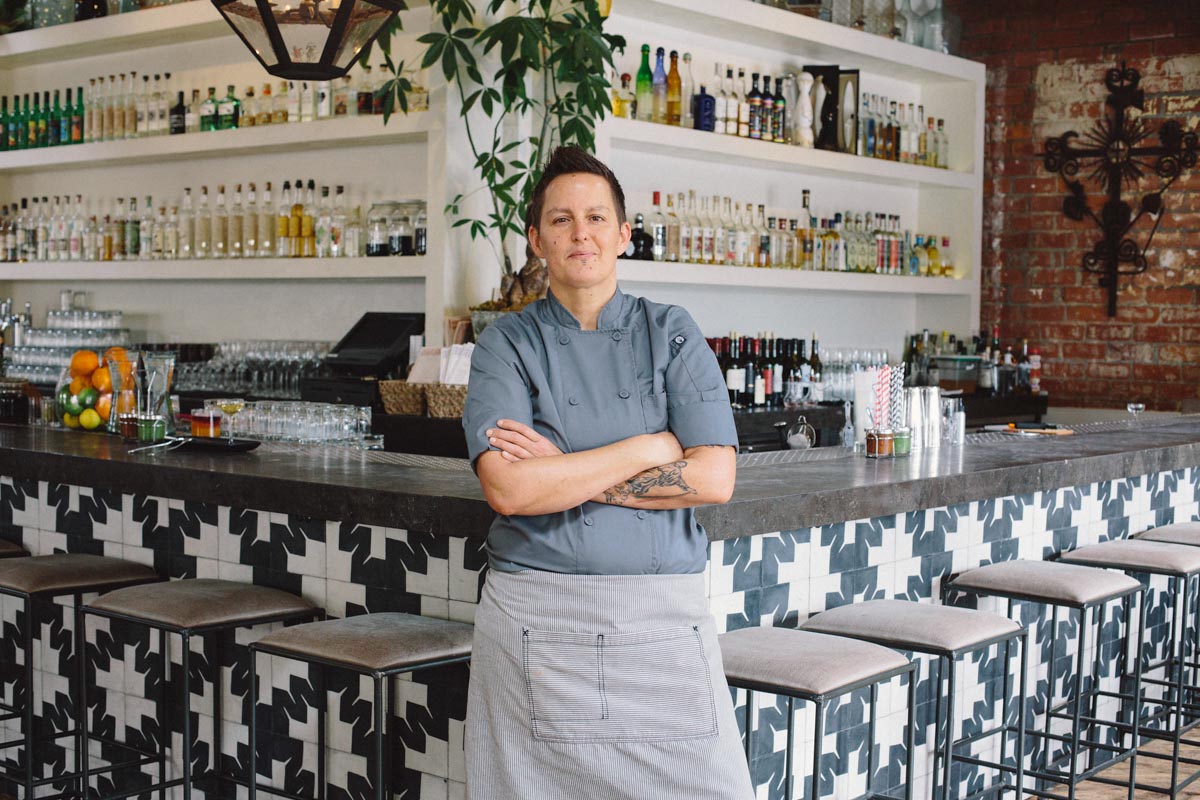 |
|
What does Gracias Madre mean to you now after a year of being open?
CM: For me, it’s family. One thing I love about the restaurant industry is when we open a restaurant, we hire people who work there, many of whom I knew nothing about until they started working here. They come in day in and day out and have built a community, one that feels like family. For me, it’s like another home.
I think that’s the most rewarding and most sustainable—the actual feeling that there’s something here that feeds my soul on a level that’s beyond just food. It’s a relationship with people who work here and come in here as guests. And any successful restaurant needs to create that. No matter how you go about it, you have to create a place that feels like an authentic, unique expression of what you’re passionate about.
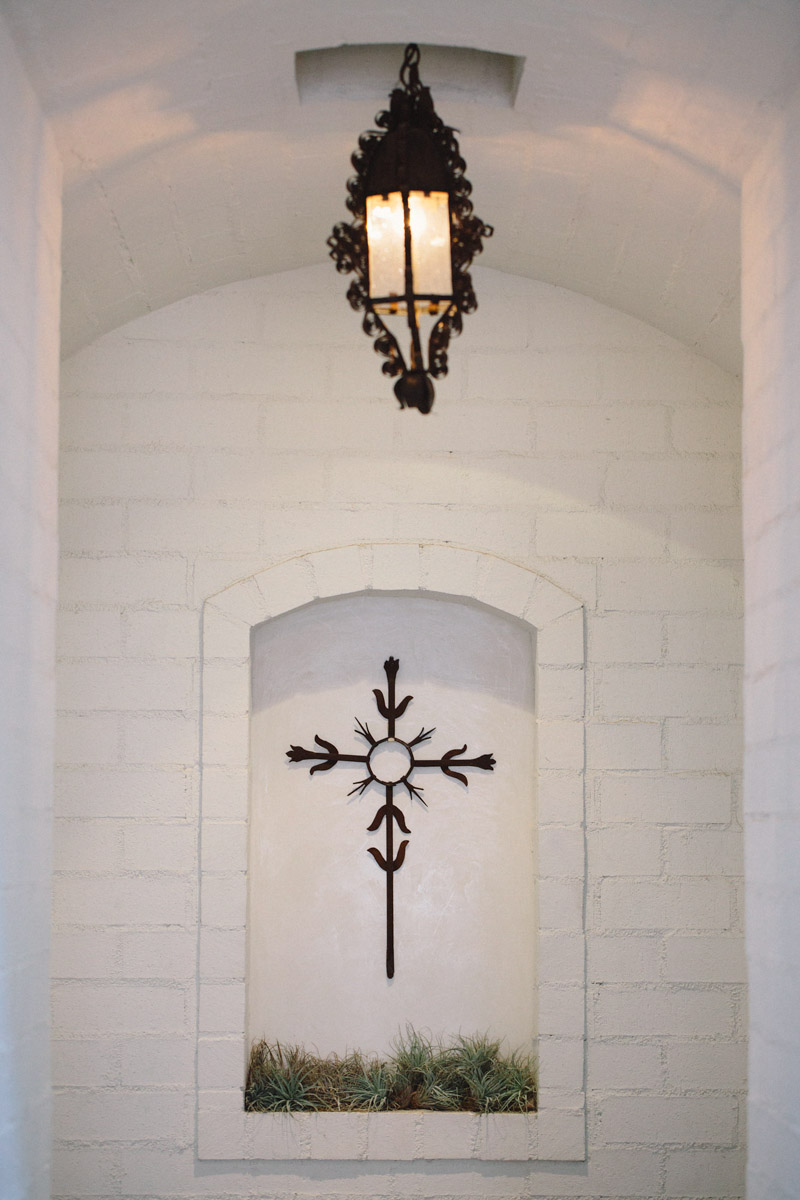 |
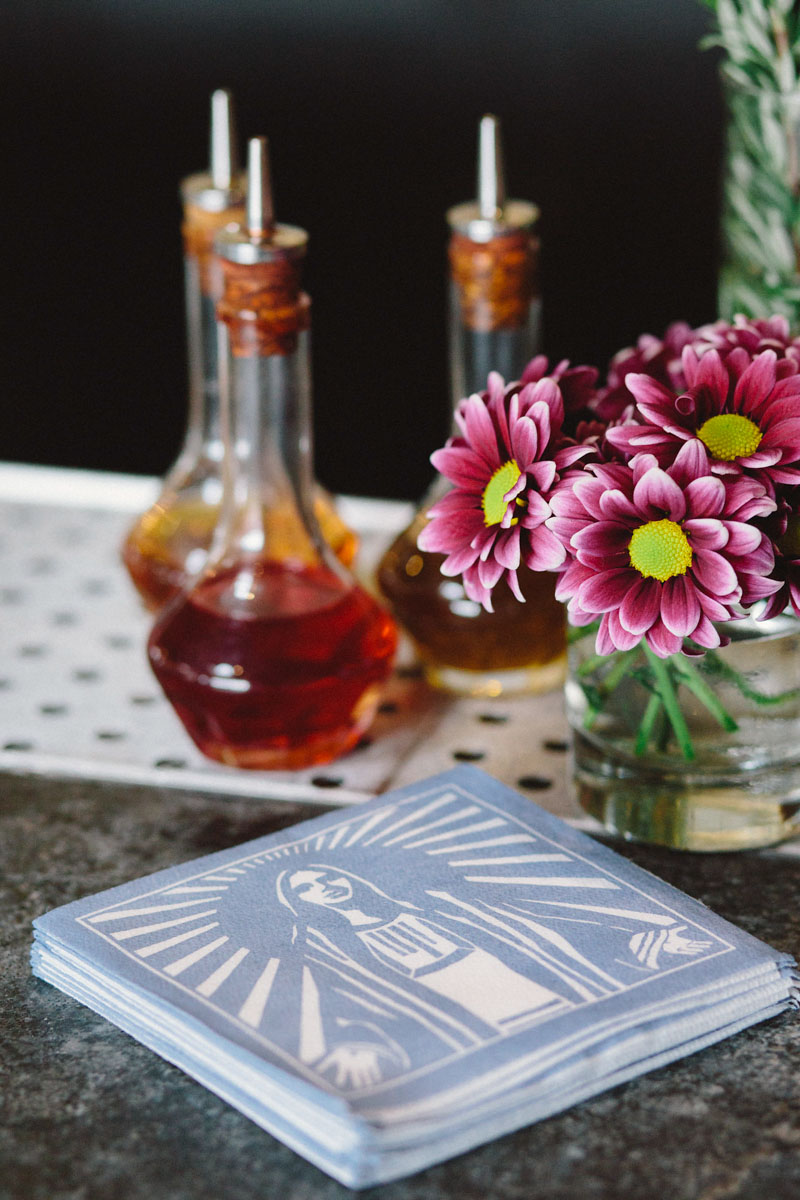 |
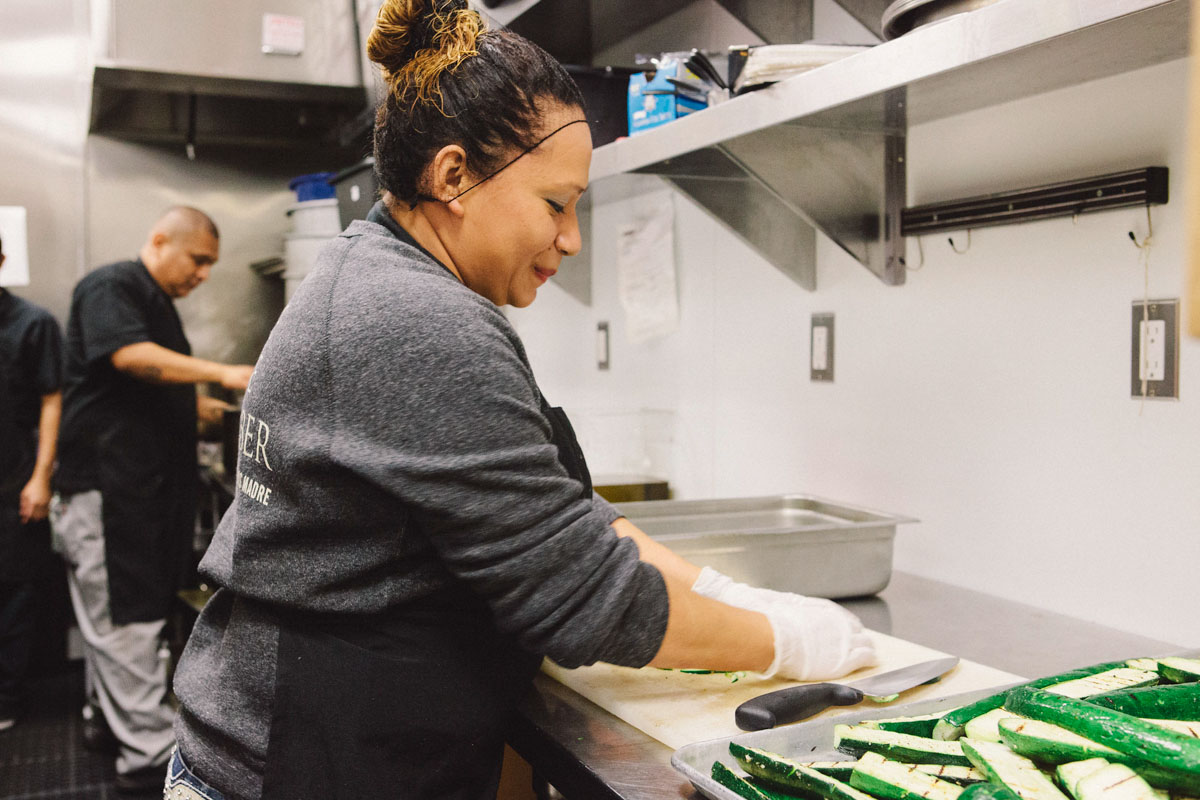 |
|
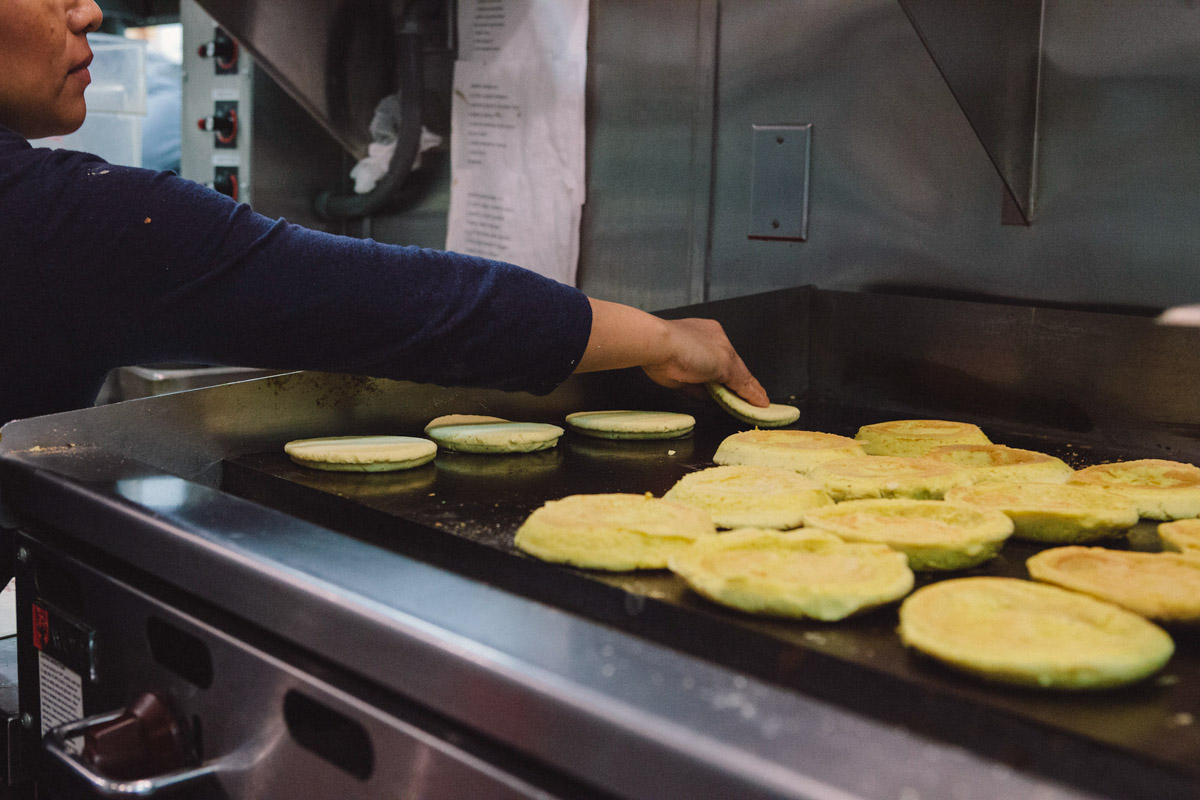 |
|
Gracias Madre
8905 Melrose Ave, West Hollywood, CA 90069





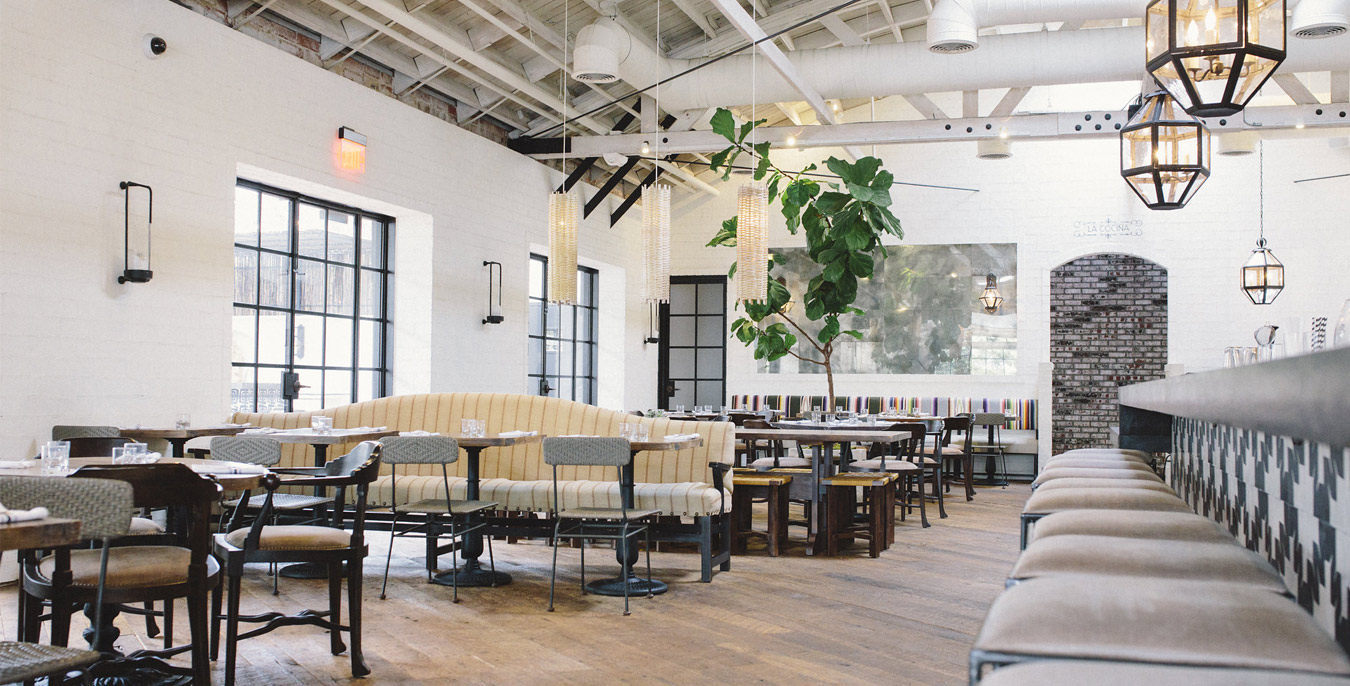

Our comments section is for members only.
Join today to gain exclusive access.